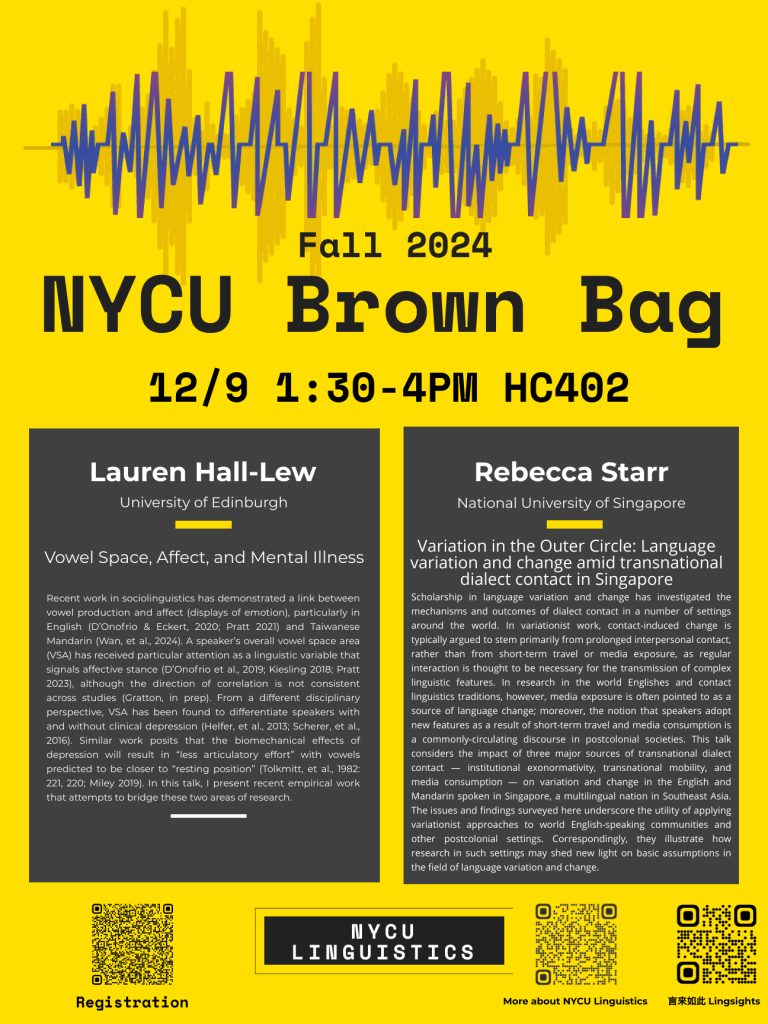12/9 13:30pm-16:00pm
Registration: https://docs.
“Vowel Space, Affect, and Mental Illness”
Abstract: Recent work in sociolinguistics has demonstrated a link between vowel production and affect (displays of emotion), particularly in English (D’Onofrio & Eckert, 2020; Pratt 2021) and Taiwanese Mandarin (Wan, et al., 2024). A speaker’s overall vowel space area (VSA) has received particular attention as a linguistic variable that signals affective stance (D’Onofrio et al., 2019; Kiesling 2018; Pratt 2023), although the direction of correlation is not consistent across studies (Gratton, in prep). From a different disciplinary perspective, VSA has been found to differentiate speakers with and without clinical depression (Helfer, et al., 2013; Scherer, et al., 2016). Similar work posits that the biomechanical effects of depression will result in “less articulatory effort” with vowels predicted to be closer to “resting position” (Tolkmitt, et al., 1982: 221, 220; Miley 2019). In this talk, I present recent empirical work that attempts to bridge these two areas of research.
12/9 13:30pm-16:00pm Rebecca Starr (Associate Professor, National University of Singapore)
“Variation in the Outer Circle: Language variation and change amid transnational dialect contact in Singapore “
Abstract: Scholarship in language variation and change has investigated the mechanisms and outcomes of dialect contact in a number of settings around the world. In variationist work, contact-induced change is typically argued to stem primarily from prolonged interpersonal contact, rather than from short-term travel or media exposure, as regular interaction is thought to be necessary for the transmission of complex linguistic features. In research in the world Englishes and contact linguistics traditions, however, media exposure is often pointed to as a source of language change; moreover, the notion that speakers adopt new features as a result of short-term travel and media consumption is a commonly-circulating discourse in postcolonial societies. This talk considers the impact of three major sources of transnational dialect contact — institutional exonormativity, transnational mobility, and media consumption — on variation and change in the English and Mandarin spoken in Singapore, a multilingual nation in Southeast Asia. The issues and findings surveyed here underscore the utility of applying variationist approaches to world English-speaking communities and other postcolonial settings. Correspondingly, they illustrate how research in such settings may shed new light on basic assumptions in the field of language variation and change.

